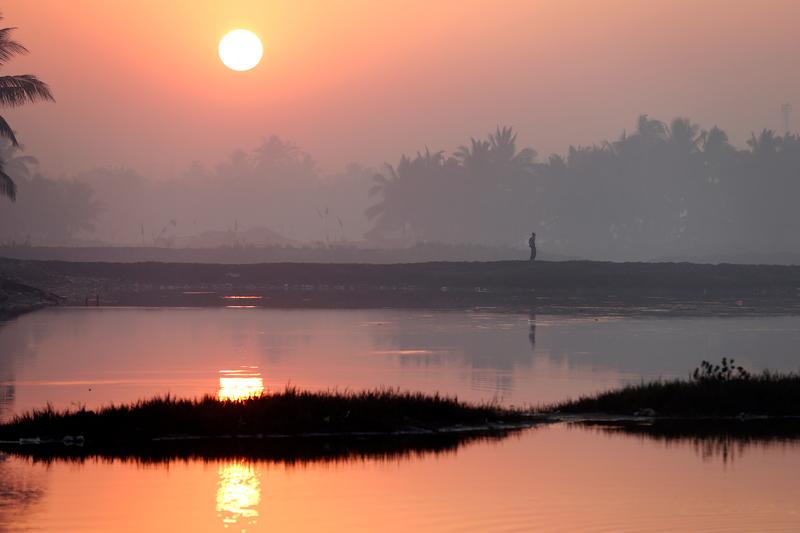Burma pledged on Wednesday “no restrictions” on journalists visiting the troubled state of Arakan this week, in the first official trip to include foreign reporters to mostly Rohingya Muslim villages affected by violence since October.
Eighteen Burmese nationals and foreigners representing international media, including Reuters, arrived in the state capital of Sittwe on Wednesday ahead of a government-escorted visit to the northern areas of Buthidaung and Maungdaw, where most residents are stateless Rohingya.
“There are no restrictions regarding the areas that you can report from,” said Thet Swe, a director at the Ministry of Information’s News and Periodicals Enterprise.
“We didn’t arrange any ‘for show’ places for news reporting,” he said.
Last year, Burma’s army unleashed a crackdown in the area after Rohingya militants attacked posts near the Bangladesh border, killing nine police officers.
Some 75,000 people fled across the nearby border to Bangladesh, according to the United Nations, which has documented allegations of gang rape, torture, arson and killings by security forces.
Burma’s government, led by Nobel laureate Aung San Suu Kyi, has denied most of the allegations, and has denied entry to a UN fact-finding mission tasked with looking into the allegations.
The government has blocked independent journalists and human rights monitors from going to the area in the far north of the state for the past nine months.
Suu Kyi has said a UN fact-finding mission would only heighten tension in the region. Many in Buddhist-majority Burma see the Rohingya as illegal immigrants from Bangladesh.
Burmese officials say a domestic investigation, led by Vice President Myint Swe — a former lieutenant general in the army — and a commission headed for former UN chief Kofi Annan, which is not mandated to investigate human rights abuses, are the appropriate ways to address problems in Arakan State.
Annan recommended in March that authorities “provide full and regular access for domestic and international media to all areas affected by recent violence.”
Reporters on the visit to the northern areas would be provided security by Burma’s paramilitary Border Guard Police force, Thet Swe said.
Although access would not be restricted, he said, reporters should stay close to officials during visits to villages for their own security.
A detailed itinerary for the five-day trip was provided to reporters on Wednesday.
The itinerary does not include visits to the villages at the centre of a two-week offensive in mid-November, in which Reuters has documented numerous allegations of abuses by troops following a clash with Rohingya militants.
However, Thet Swe said the plan was “not fixed” and would be subject to changes due to the weather and security concerns. He invited reporters to suggest additional places they want to visit.
[related]
Reporters would be taken to the village of Tinmay, where security forces killed two suspected militants and arrested one after they detonated a bomb on Sunday, according to an announcement from Suu Kyi’s office.
While Burma has denied entry to a UN fact-finding mission, a UN special rapporteur on human rights, Yanghee Lee, is visiting Arakan State this week.
Although she is not expected to visit the northern areas near the border with Bangladesh, she is due to meet some of the people displaced in violence since 2012.
About 120,000 Rohingya have lived in “internally displaced persons” camps in Arakan State, dependent on international aid, since communal widespread violence that year.



